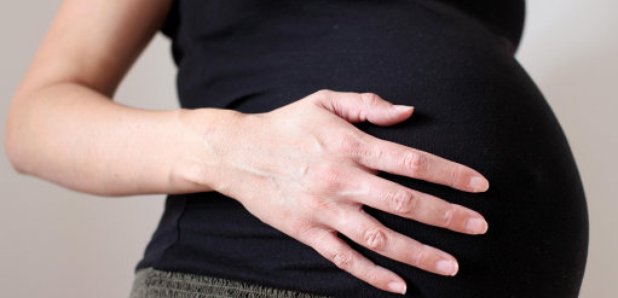High blood sugar and BMI "key risk factors" to prevent stillbirths in diabetics
30 July 2019, 07:58 | Updated: 30 July 2019, 07:59

High blood sugar levels and BMI in pregnant diabetics are "key modifiable risk factors" to reduce stillbirths, a study has found.
Diabetic women are more than four times more likely to have a stillborn baby than women without the condition, researchers from the University of Glasgow said.
The study identified 5,392 babies born to 3,847 mothers with diabetes in Scotland between April 1998 to June 2016.
Mothers with type 1 diabetes were more than three times likely to deliver a stillborn child, while those with type 2 were at least four times likely.
Stillbirth rates were 16.1 per 1,000 births in the women with type 1 diabetes and 22.9 per 1,000 births in type 2 diabetes, compared with 4.9 per 1,000 births in the general population.
Women with type 1 who had stillbirths had higher than average blood sugar levels throughout their pregnancy, while pre-pregnancy levels were a more important predictor of stillbirth in those with type 2.
There was a "large overlap" in blood sugar levels of women who gave birth to live and stillborn babies.
The researchers said that "overall efforts to improve blood glucose levels before and during pregnancy remain central".
Dr Sharon Mackin, who carried out the study, said: "It is vital that we, as healthcare professionals, find better ways to support women during their fertile ages to optimise weight and blood sugar, so that when entering pregnancy, whether that be planned or unplanned, they are better prepared and their risk of adverse outcomes is reduced.
"It is important that women with diabetes are mindful of this, and are able to access appropriate pre-conceptual counselling, even if not imminently planning a pregnancy.
"Women with diabetes should also make contact with their diabetes clinic as soon as they get a positive pregnancy test so that we can see and support them early on."
A third of stillbirths in diabetic women in the study occurred at full term, and researchers believe these may be prevented by change in routine care and delivery policies.
But early delivery brings with it the risk of complications such as neonatal respiratory distress syndrome (RDS).
Researchers say earlier delivery may be considered "an attractive option" but that more research is needed before recommendations for optimal timing are made.
Dr Mackin said the question "has to be asked about whether earlier delivery of all diabetic pregnancies could prevent these term stillbirths".
She said: "We don't know the answer to this. The optimal timing of delivery in such pregnancies is not clear.
"Changes in routine delivery guidelines has to be balanced against the risk of an infant developing breathing problems as a result of immature lung development.
"The risk of such breathing problems is higher at 37 weeks than at later weeks. We think this is a key area of research that needs to be explored further, before any further recommendations can be made for early delivery."
Babies with the highest and lowest birth weights were most at risk, the study published in Diabetologia found.
An "unexpected" discovery was that stillborn infants were much more likely to be male than female among mothers with type 2 diabetes.
This could be because male foetuses have a higher metabolism in the latter stages of pregnancy but smaller placentas than females, the authors suggested.
Dr Emily Burns, head of research communications at Diabetes UK, said: "Most women with diabetes have healthy pregnancies and healthy babies, but this research reinforces the importance of supporting women to manage their blood glucose levels if they are planning a pregnancy, in order to reduce their risk of complications as much as possible.
"It also suggests that losing extra weight, for women with type 2 diabetes who are overweight, could help to reduce this risk as well.
"We need research to find better ways of predicting who is most at risk of complications during pregnancy, to ensure support can be provided to those who need it most."






















